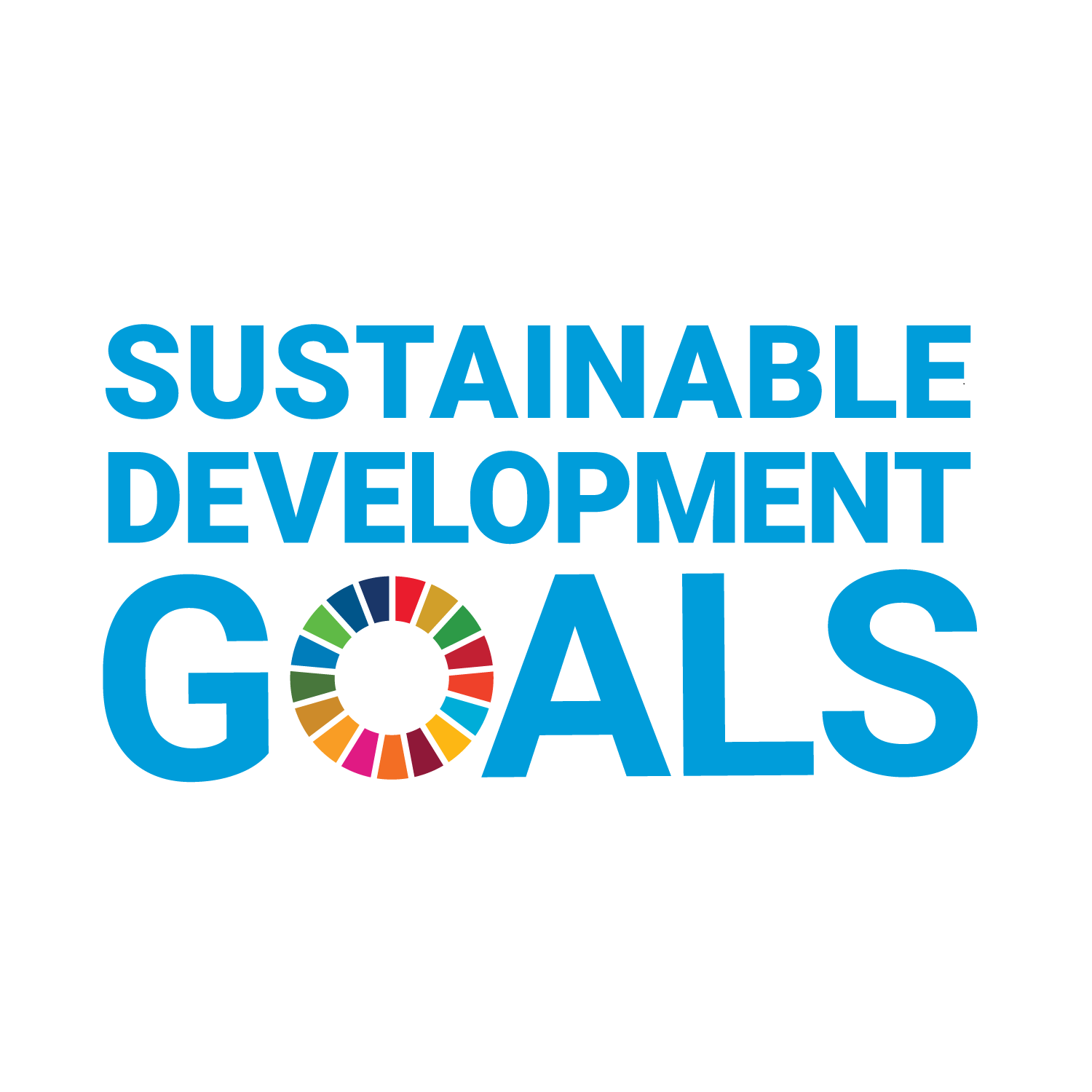

In order for companies to grow over the long term, the idea of emphasizing the three perspectives of ESG in management is spreading around the world. We believe that fulfilling our social responsibility to all stakeholders will lead to an increase in corporate value, and we will build a highly transparent and sound corporate governance system. In addition, Abalance Group will continue to contribute to the realization of a sustainable society (SDGs) through the practice of ESG management, which aims to realize a sustainable and prosperous society.
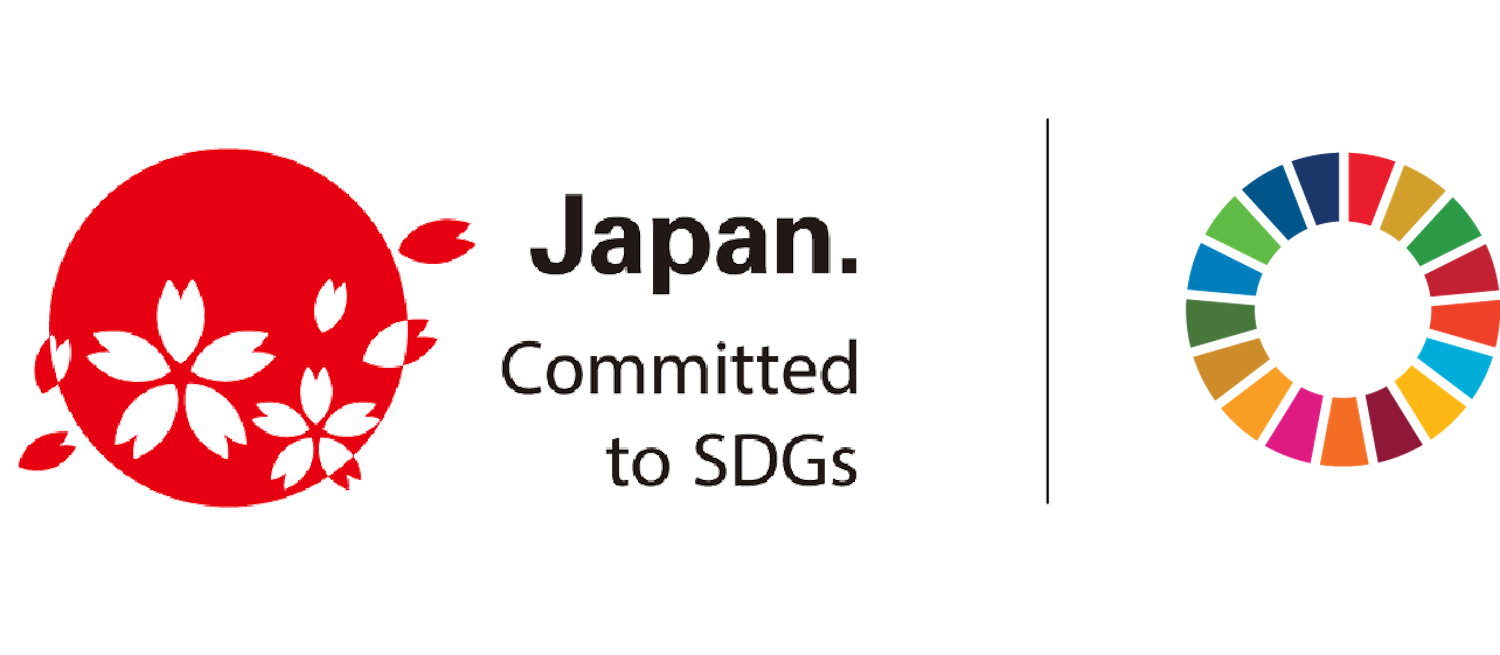

The Board of Directors consists of 6 members, including 4 directors who are Audit and Supervisory Committee members. Outside directors (4 people) who are directors (2 people) or higher make up the majority of the Board of Directors, and we recognize that the effectiveness of the Board of Directors can be ensured. Appropriate personnel are appointed to supervise business execution based on a comprehensive judgment of knowledge.
We have established an internal audit office (2-3 people) that guarantees independence under the direct control of the representative director, and the head of the internal audit office director is responsible for conducting internal audits every term. We investigate whether the operations under the jurisdiction of each department are properly and effectively applied in accordance with laws and regulations, the Articles of Incorporation, internal regulations, and various handling guidelines, and report the results to the Board of Directors.
(https://www.abalance.jp/aboutus/governance-code)
For more details, please check “Corporate Governance.”

In order to contribute to a safe and secure decarbonized society, Abalance Group is promoting the spread of green energy by developing solar power plants, and manufacturing solar panels at its own factory at VSUN (a group company in Vietnam) in response to the strong demand for electricity not only in Japan but also overseas, mainly in Southeast Asia.
Up to now, we have developed a renewable energy business mainly on the solar power generation business, which is equivalent to reducing CO2 emissions by approximately 2 million tons and covering the annual power consumption of approximately 770,000 households. As a group vision for 2030, we aim to contribute about 1% of the government’s target of “estimated amount of introduction of solar power in 2030.”

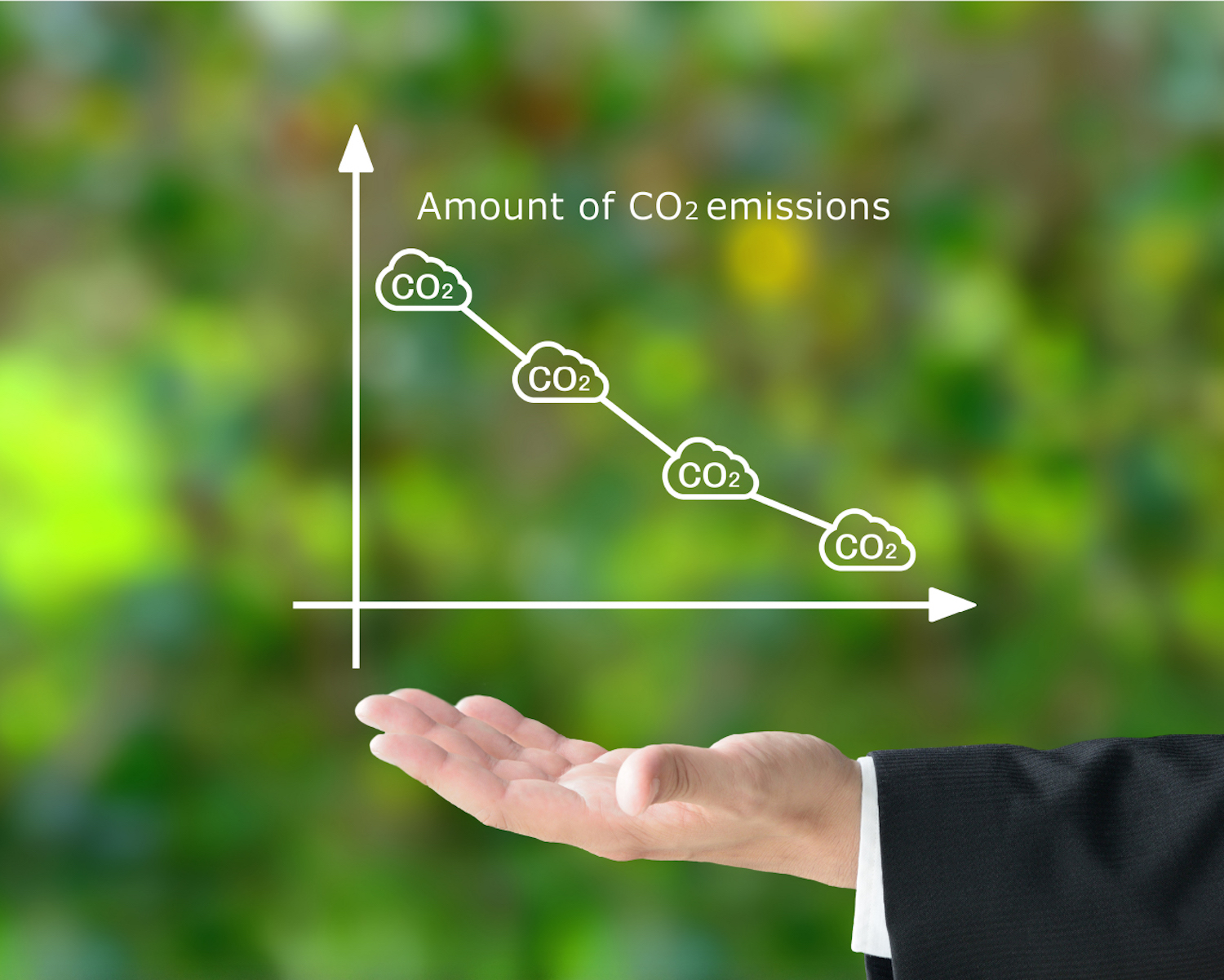





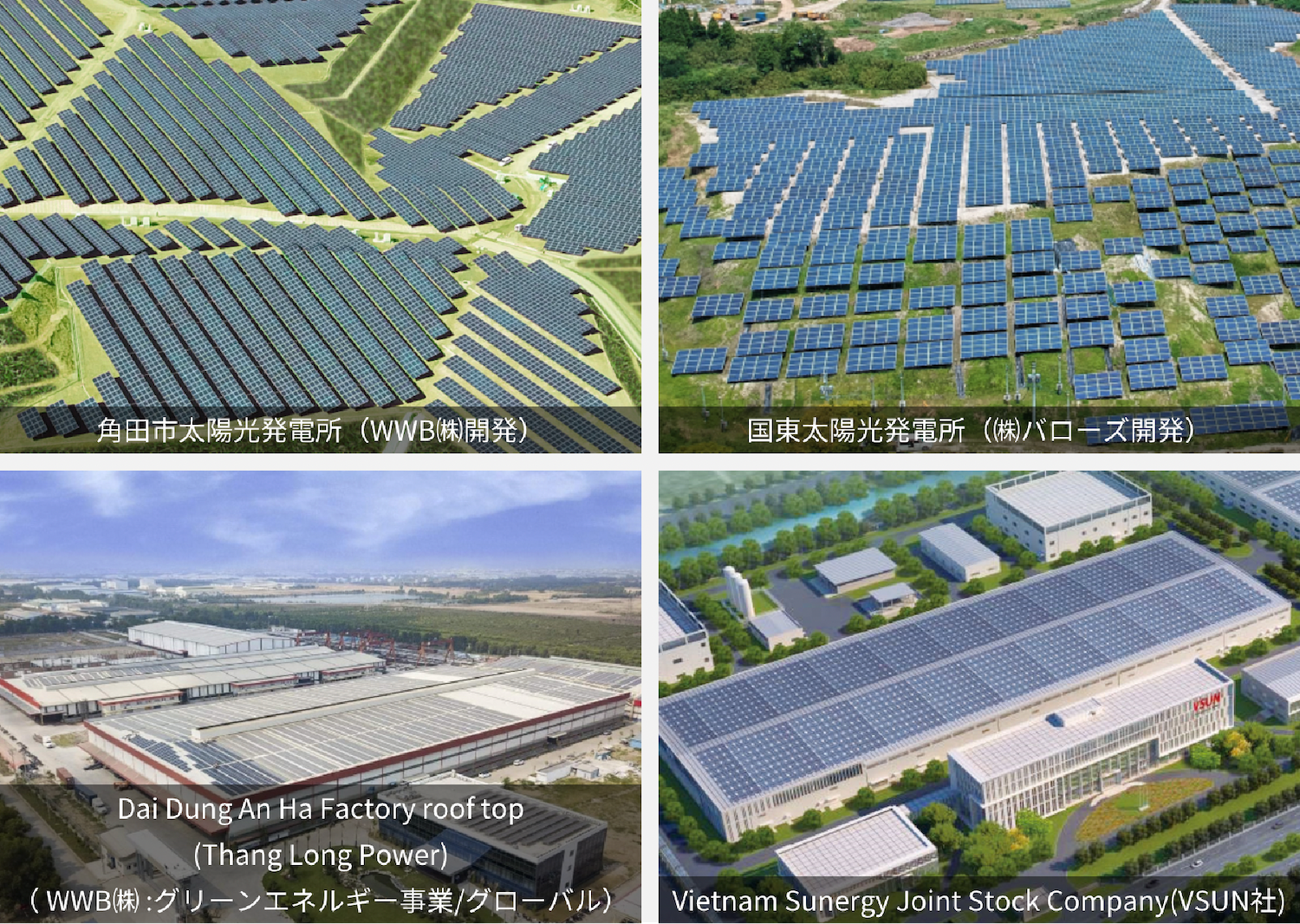

In Japan, it is difficult to imagine an environment that is suddenly enveloped in darkness when the sun sets. WWB Corporation believes that delivering light from green energy to developing countries is significant as an important international contribution that supports local infrastructure and social life. In addition, we believe that assistance to disaster-stricken areas is meaningful not only for the promotion of the SDGs, but also for the fulfillment of our social mission and responsibilities, and we should contribute more actively than before.




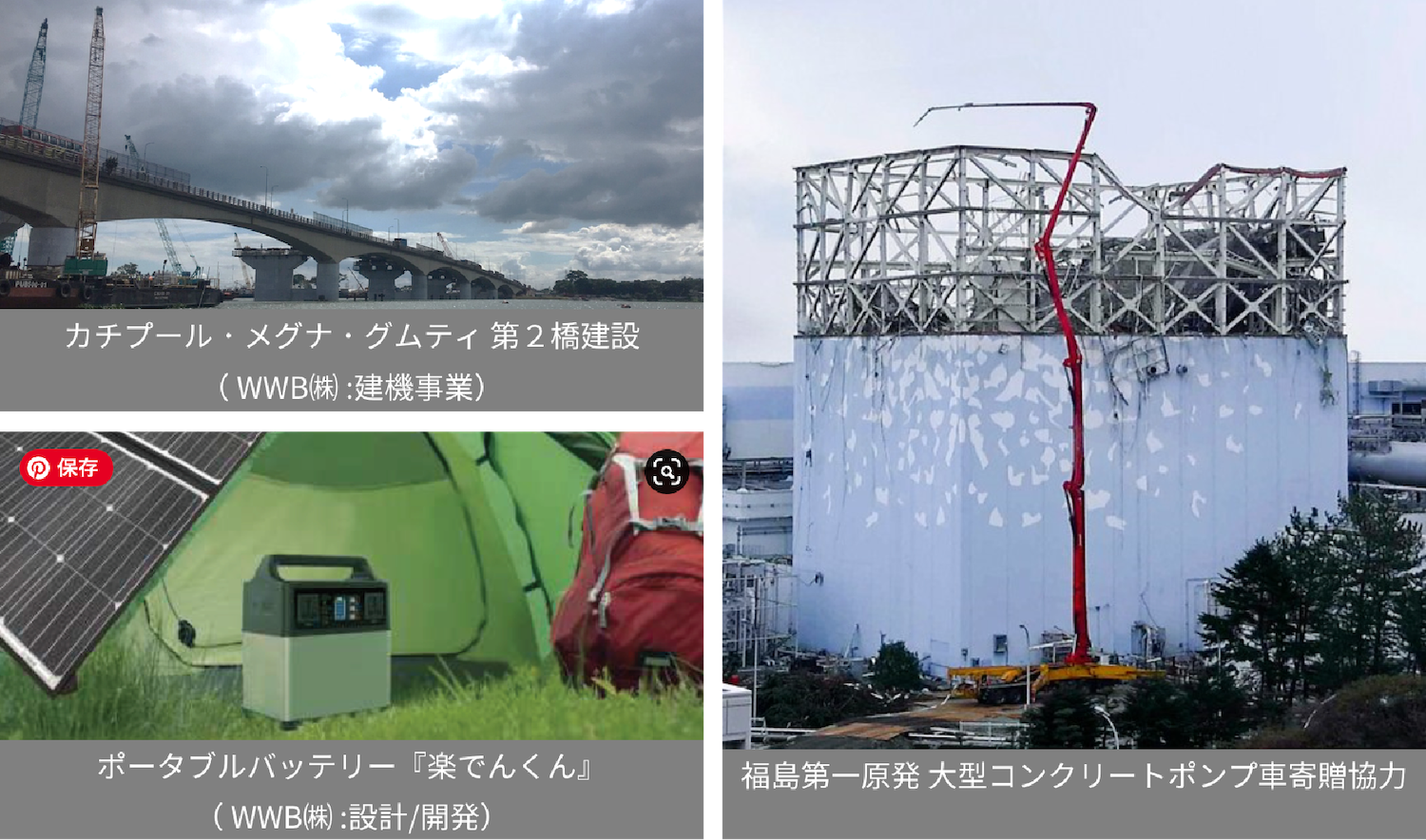

WWB Corporation installs power generation equipment, such as solar power generation equipment in the upper space and is working on solar sharing that simultaneously conducts agriculture and power generation business. In addition, we actively participate in activities to raise awareness of environmental conservation by technically sponsoring various events related to SDGs with solar panels (lightweight model) and modules developed by our company.




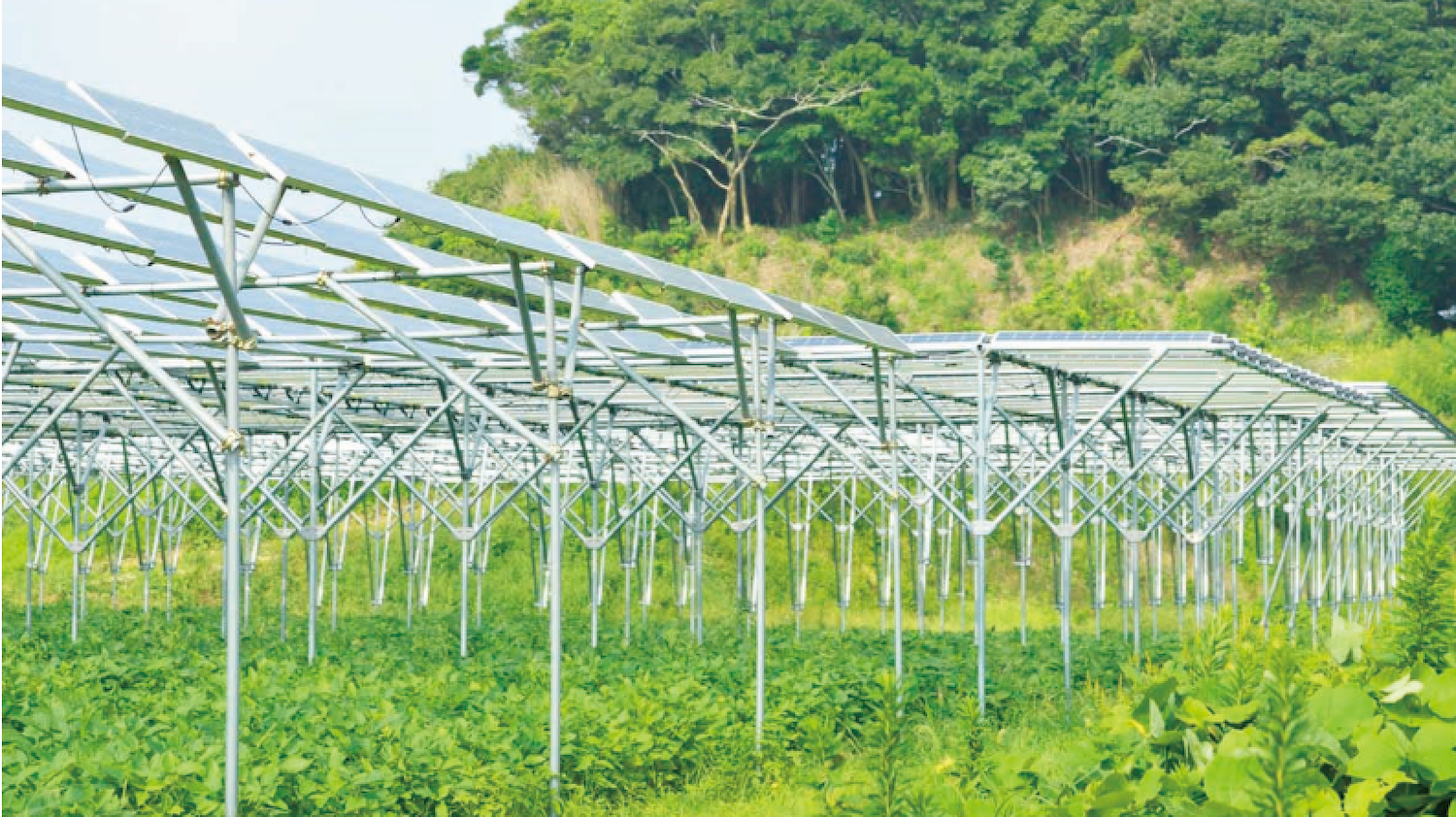



In the photocatalyst market, it has been reported that the coronavirus has been inactivated by a visible light-responsive photocatalyst that absorbs visible light and decomposes harmful substances that come into contact with it and there are growing expectations for photocatalysts in the fight against infectious diseases. In such an environment, our group company, Japan Photocatalyst Center Corporation, has developed its own antibacterial and antiviral product “blocKIN”. We will continue to develop products that are useful for “safety and security” for the health and welfare of all people.




Development of “Sagan Coat”
・Coating technology using water-based functional titanium oxide from Saga Prefecture
・Composed only of water and titanium oxide, ensuring “safety and security”
・After drying, only the titanium oxide component remains, and the photocatalytic activity is high and the effect lasts.
Started handling “blocKIN”
・Developed a spray-type antibacterial and antiviral solution during the coronavirus pandemic
・The antibacterial and antiviral effect is 99.9%, and it is effective under both sunlight and fluorescent light
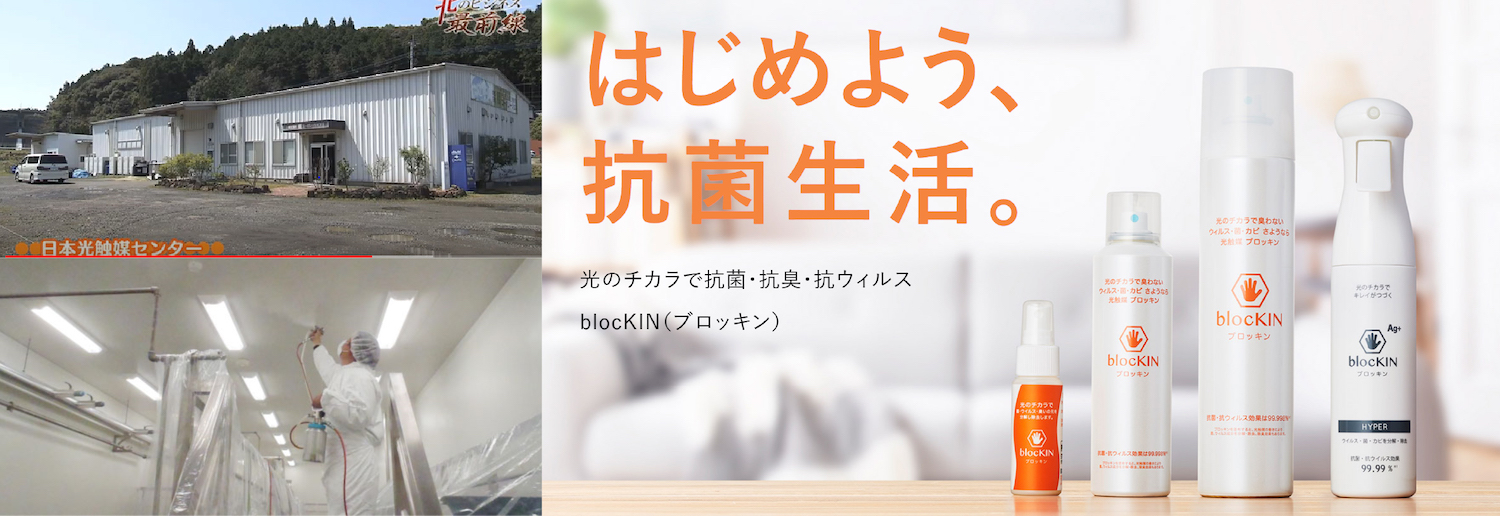

Abalance Group has formulated and announced a medium-term management plan related to management strategies (from fiscal 2024 to fiscal 2026) related to the business portfolio. For more details, please refer to our website (timely disclosure on September 22, 2023).(https://www.abalance.jp/ir/news/)
Abalance Group has expressed support for the Task Force on Climate-related Financial Disclosures (TCFD) established by the Financial Stability Board (FSB), and has joined the TCFD Consortium, which consists of companies and financial institutions that support the recommendations. We are participating in this and will continue to strive to expand information disclosure related to climate change response.
We recognize that the information we disclose and provide is the basis for constructive dialogue with our shareholders and institutional investors, and in order to expand disclosure, we will appropriately judge the scope of English disclosure documents and materials within a reasonable range and strive to expand them.
(→English disclosure link)
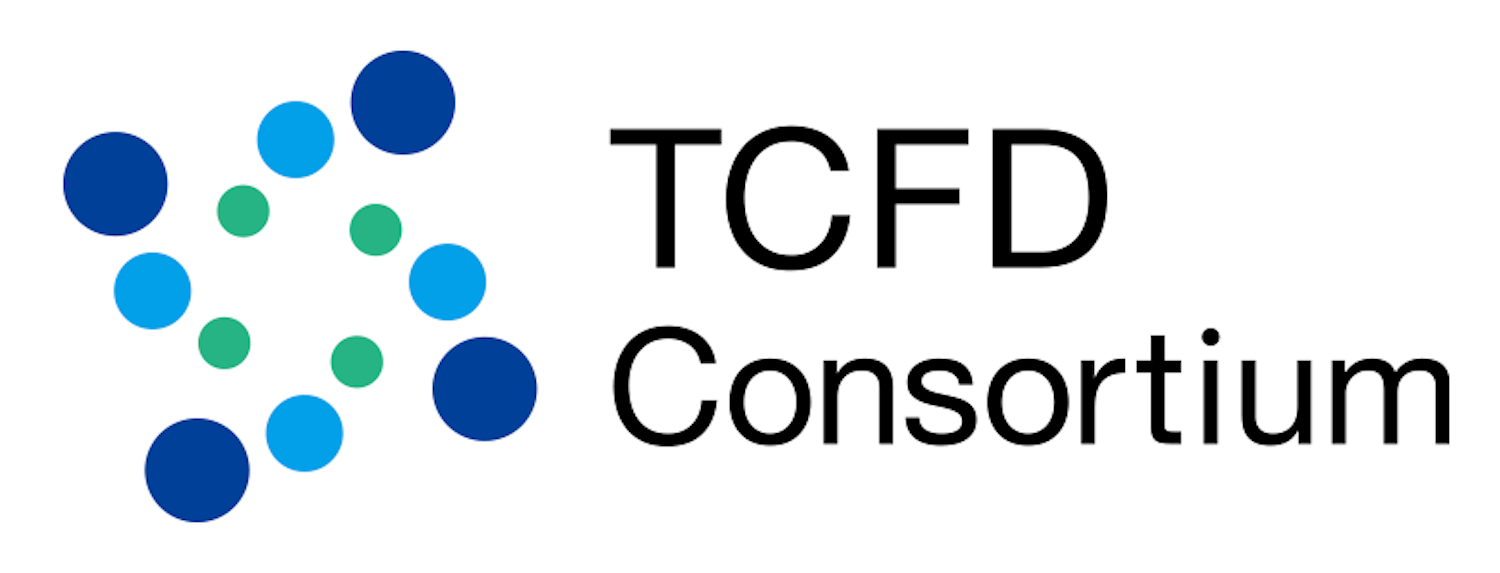

Abalance Group regularly trains all Group employees on the role green energy business plays in the Sustainable Development Goals (SDGs).We also provide our partner companies, cooperating stores, business partners with education to improve the quality of their business by sharing knowledge related to green energy and the characteristics of our products before the start of business.


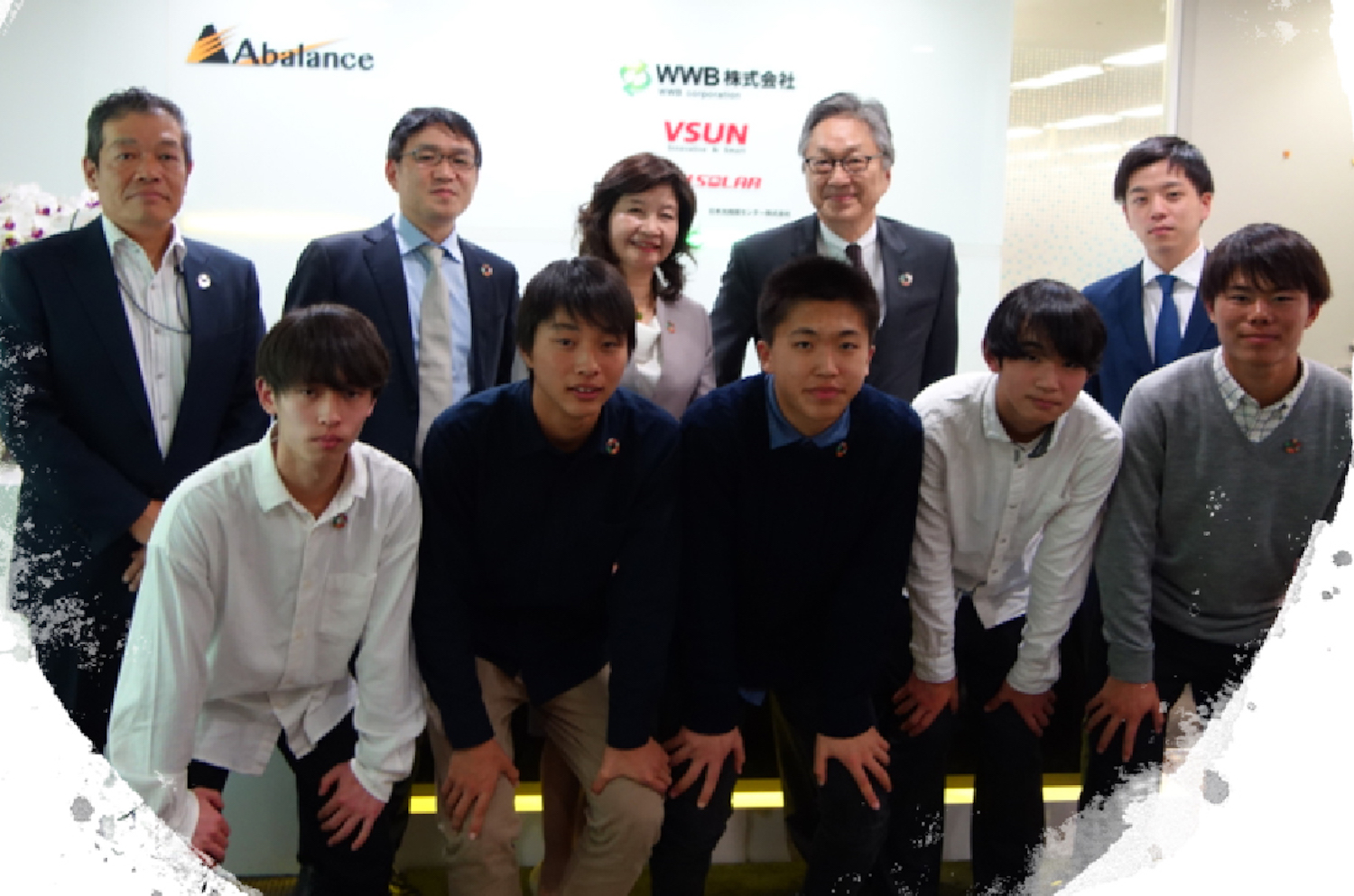
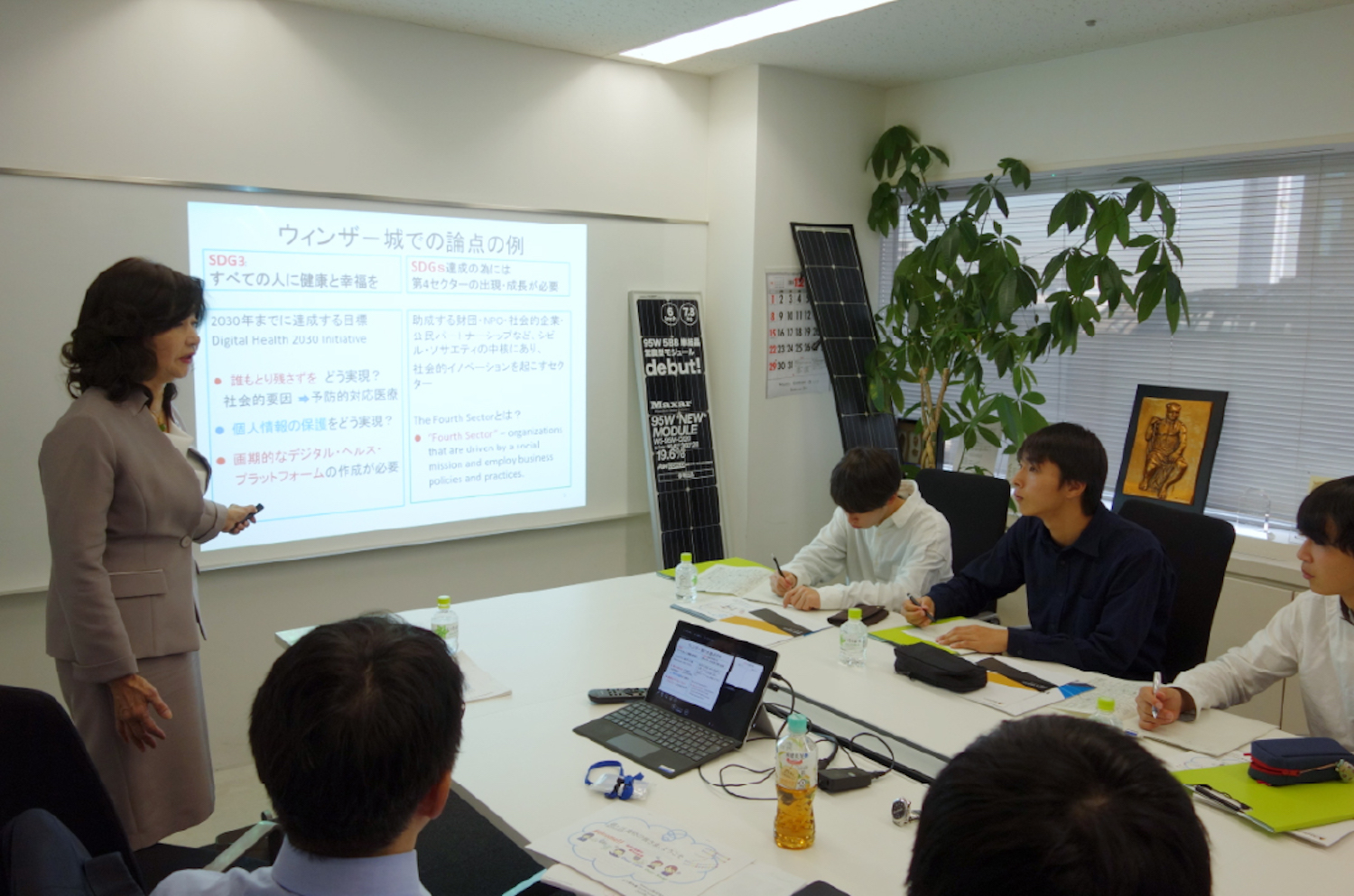

Abit Corporation in Abalance Group is improving labor productivity and focusing on human-like work by improving white-collar productivity using information technology and proposing business models using IOT. we are also working on work style reforms throughout the group and recommending that you can choose your own flexible work style. By accepting diverse human resources regardless of nationality, we avoid environments and situations where people can’t work even if they want to, which can cause poverty, and provide a place where each person can play an active role by making the most of their individuality.








Through affiliated organizations, Abalance Group deepens exchanges regardless of whether they are in the same industry or different industries, and exchanges information on the renewable energy and photocatalyst industries and the latest technology. We believe that various exchanges through related organizations will contribute to the development of the industry and the spread of renewable energy and photocatalysts.

Exchanges and information dissemination through related organizations


The Sustainable Development Goals (SDGs) are described in the 2030 Agenda for Sustainable Development adopted at the United Nations Summit in September 2015 as the successor to the Millennium Development Goals (MDGs) established in 2001. It is an international target from 2016 to 2030. Consisting of 17 goals and 169 targets to realize a sustainable world, they pledge to leave no one behind. The SDGs are universal, not only for developing countries, but also for developed countries themselves, and Japan is also actively working on them.

















